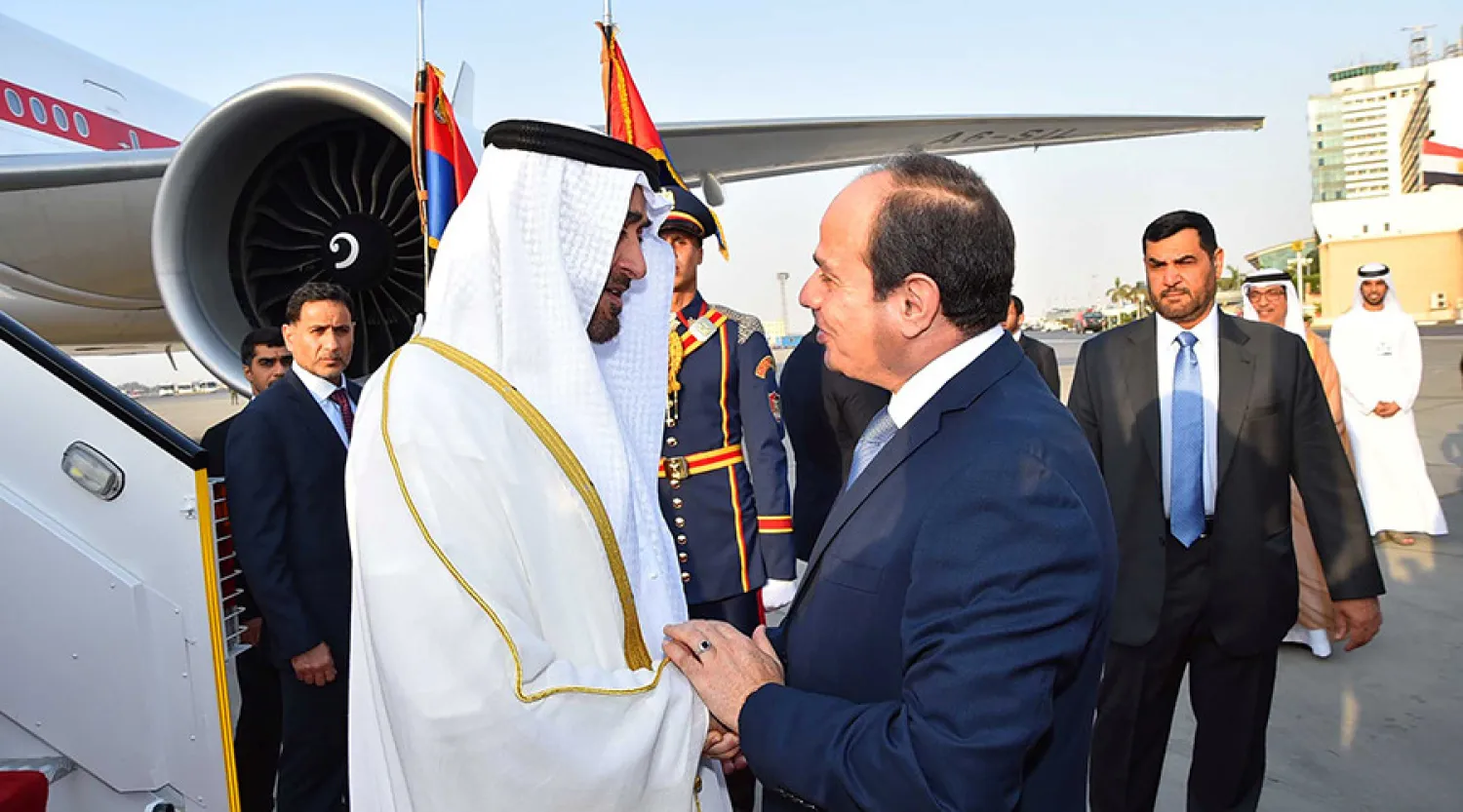The United Arab Emirates and Egypt stressed on Monday the need to stand up against foreign intervention in Arab countries’ internal affairs and to intensify joint efforts to achieve the interests of the Arab nation.
The two sides also agreed on maintaining coordination to overcome challenges threatening regional security and stability.
Egyptian President Abdel Fattah el-Sisi discussed with the Crown Prince of Abu Dhabi and Deputy Supreme Commander of the UAE Armed Forces, Sheikh Mohammed bin Zayed Al Nahyan, developments in the fight against terrorism, underlining the necessity to exert concerted efforts to counter the financing of terrorist groups and combat extremism and violence.
Sheikh Mohamed emphasized the strong bilateral ties between the UAE and Egypt, which, he said, were based on the values of understanding and agreement over regional and international issues.
“The Emirati-Egyptian coordination has proved its toughness over the past years in facing various challenges in the region, foremost of which is the challenge of terrorism, which has become a serious global threat that can not be tolerated, because it has spread in a manner that can not be ignored. This calls for a serious Arab, regional and international stand to face this threat, that targets everyone without exception," the Abu Dhabi crown prince said.
“The UAE, under the leadership of His Highness Sheikh Khalifa Bin Zayed Al Nahyan, stands firmly with Egypt in its war against terrorism, which will not be able to hinder or disrupt the country’s vision of achieving development and progress, and the well-being of its people,” he added.
Sisi, for his part, highlighted Egypt’s keenness to maintain strong bilateral relations and coordination between the two countries at all levels, noting that the security of the Gulf States was an integral part of Egypt’s national security.
The Egyptian president arrived in Abu Dhabi on Monday for a two-day official visit.









